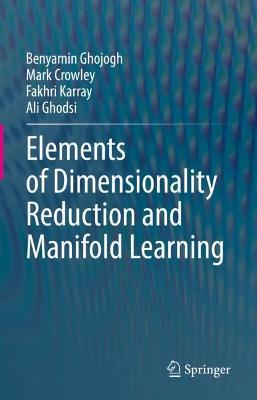Benyamin Ghojogh: Benyamin Ghojogh received the B.Sc. degree in electrical engineering from the Amirkabir University of Technology, Tehran, Iran, in 2015, the M.Sc. degree in electrical engineering from the Sharif University of Technology, Tehran, Iran, in 2017, and the Ph.D. in electrical and computer engineering (in the area of pattern analysis and machine intelligence) from the University of Waterloo, Waterloo, ON, Canada, in 2021. He was a postdoctoral fellow, focusing on machine learning, at the University of Waterloo, in 2021. His research interests include machine learning, dimensionality reduction, manifold learning, computer vision, data science, and deep learning. Mark Crowley: Mark Crowley has a PhD in Computer Science from the University of British Columbia and was a postdoctoral fellow at the Oregon State University. He is now an Associate Professor in the Department of Electrical and Computer Engineering at the University of Waterloo and regularly teaches undergraduate and graduate courses on software programming, artificial intelligence, and data analysis. He is a member of the Waterloo Artificial Intelligence Institute. He carries out research to find dependable and transparent ways to augment human decision making in complex domains, especially in the presence of spatial structure, streaming data, and uncertainty. His research group focuses on developing new algorithms within the fields of reinforcement learning, deep learning, and manifold learning. This often involves collaboration with industry and policy makers in diverse fields such as sustainable forest management, ecology, autonomous driving, physical chemistry, and medical imaging. Fakhri Karray: Fakhreddine (Fakhri) Karray is the Loblaws Research Chair in Artificial Intelligence in the department of electrical and computer engineering at the University of Waterloo, Canada. He is the founding co-director of the University of Waterloo AI Institute. He is currently serving as the Provost and Professor of Machine Learning at the Mohamed bin Zayed University of Artificial Intelligence, a first of its kind graduate level, research based artificial intelligence university. Fakhri's research interests are in the areas of advances in machine learning, operational AI, cognitive machines, natural human-machine interaction, autonomous and intelligent systems. Applications of his research include virtual care systems, cognitive and self-aware machines/robots/vehicles, predictive analytics in









